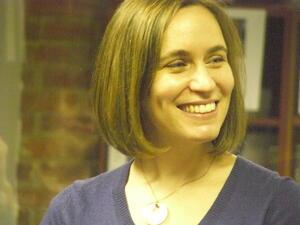Making Women's History
Dr. Judith Rosenbaum originally wrote this piece for Women’s History Month for the Huffington Post, cross-posted with permission.
I’m a scholar of women’s history, so you’d think March—the official Women’s History Month—would be the highlight of my year. You’d be wrong. As I (and many others) have written about before, it’s insufficient to devote one month a year to the story of more than half the population, and problematic to ghettoize women’s history as if it isn’t integral to our understanding of all history.
But you’d also be right. Because a governmentally proclaimed Women’s History Month presents the opportunity—one that I gleefully embrace—to engage people in the work of making women’s history. By “work” I don’t just mean study. Sure, it’s great for teachers to use March as a time to focus on women’s stories in their classrooms. But women’s history also suggests a model for radically shifting our understanding of history from an academic subject to a worldview, and even a social justice imperative.
Yes, women’s history is an academic field, one populated with many significant scholars and groundbreaking theorists. But we shouldn’t forget that its roots grew out of the modern women’s movement and the feminist “search for a usable past” that would help women find role models, understand their own life experience as part of a larger context, and learn how to enhance their efforts to change the world.
In taking up the challenge of women’s history, then, our job is not just to learn about women’s past, but to engage in women’s present, with an eye toward creating a better future—for all people. In other words, we need to become partners in collecting and spreading women’s history. We can’t leave this work only to the scholars. We need to democratize it, to own it, to get our hands dirty in the stuff of women’s lives.
This means asking questions of the women around us and actively listening to their stories. But that’s not enough. It also means taking the additional steps of mining those stories for wisdom and lessons, and then sharing those stories and that wisdom with our families, our colleagues, our teachers, our neighbors, our friends. It means bringing those stories into how we live our lives every day—integrating them into our songs, our rituals, our humor, our politics (and, of course, our social media feeds).
But wait, there’s more! We can also make history ourselves by being active agents of change in the world—taking advantage of the rights won by earlier generations, and leveraging them to continue building momentum for social change. That’s also part of what women’s history demands of us.
Because really, what is history about? It’s not about names and dates and presidents and wars. It’s about understanding how the world has changed over time so that we can figure out how to keep the world changing for the better. It’s about understanding the relations of power that shape our societies and the responsibility of human beings to do what we can (to paraphrase Rev. Martin Luther King, Jr.) to keep the arc of history bending toward justice. And it’s about the power of storytelling to transform how we understand ourselves and our place in the world.
If we can approach Women’s History Month with that impulse, then I’m all for it, because it carries an internal momentum that could never be contained or ghettoized. Instead, it will become a springboard to an engagement with a living, relevant, personal history that we will carry with us throughout the year.







